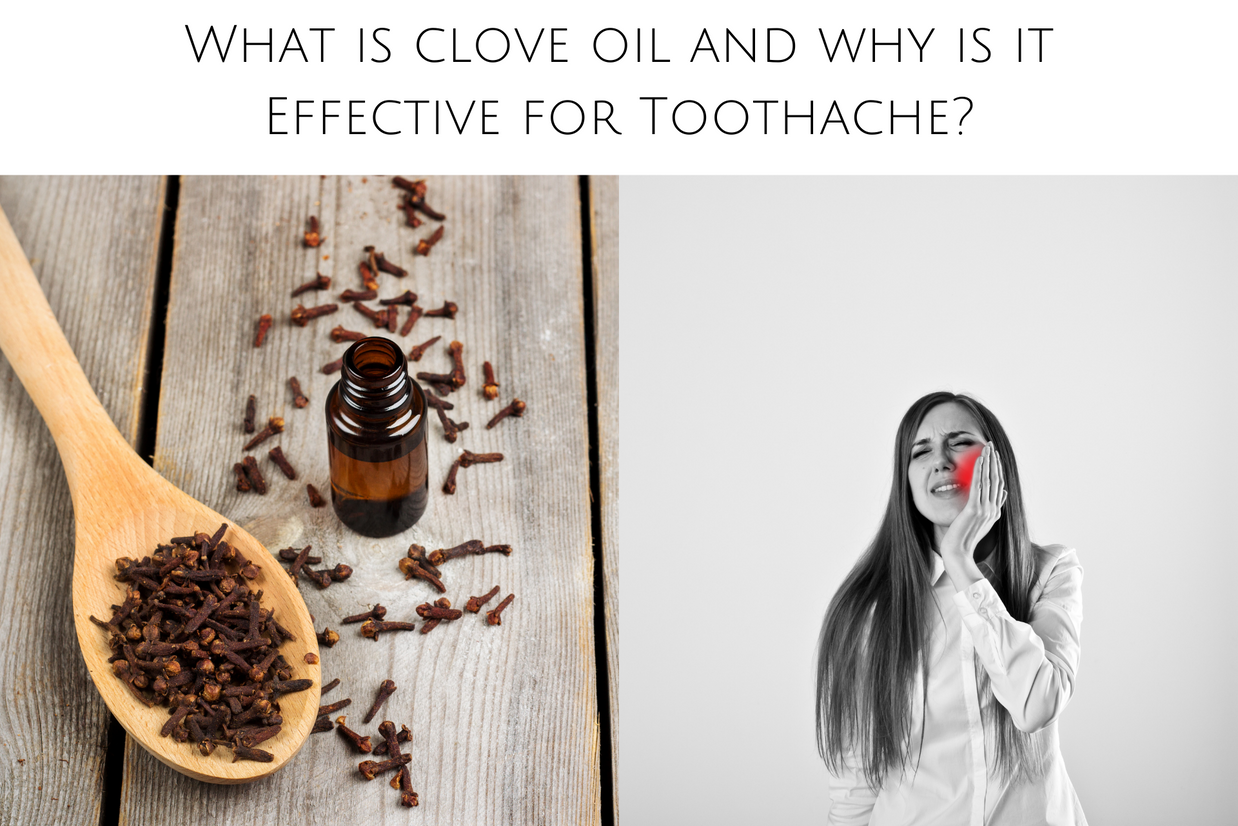What is clove oil and why is it Effective for Toothache?
What is clove oil?
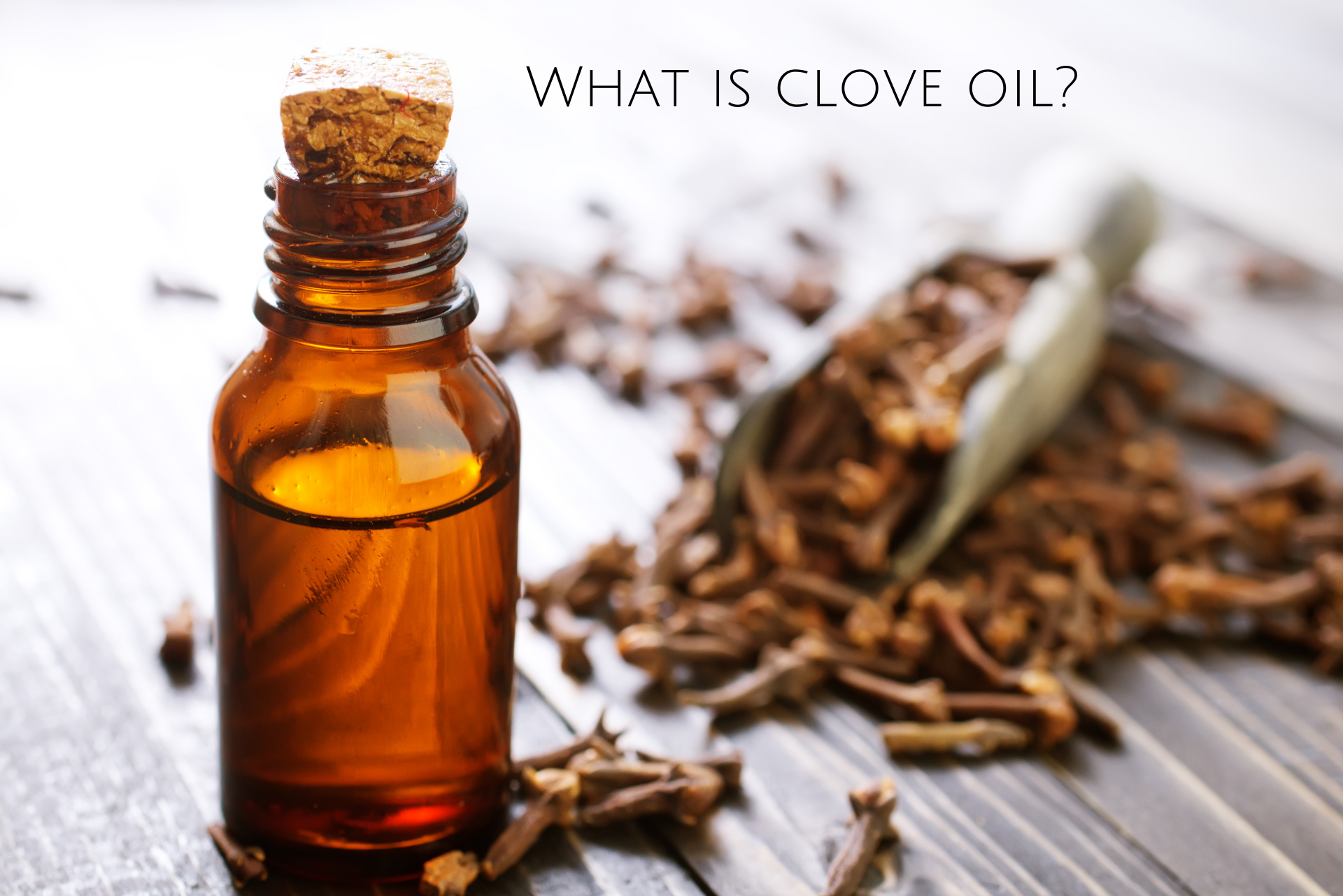
Clove oil is a popular remedy for toothache, and it is a potent natural painkiller. Clove oil contains eugenol, which is an ingredient that is effective in killing the bacteria that cause tooth decay and gum disease. Clove oil can be applied to the gums, or cheek when you have a toothache. It can also be used in a mouthwash or gargle to prevent the spread of bacteria and prevent further damage to your teeth.
Clove oil is derived from cloves of the clove tree, which are crushed and then distilled into an essential oil with several active ingredients including eugenol, benzaldehyde, and caryophyllene oxide. Clove oil is made from the dried flower buds of the clove tree. It has a strong, pungent smell and taste due to its high concentration of eugenol, which can numb the pain by acting on the trigeminal nerve. It also contains thymol, which acts as an antiseptic and can kill certain bacteria in your mouth that cause tooth decay.
How to use clove oil to treat toothache:

Clove oil can be bought at most grocery stores or pharmacies near you. It has been used as an antiseptic, antifungal, antiparasitic, and antibacterial agent in many countries around the world. Clove oil can be applied topically to treat wounds, or it can be ingested orally to treat stomach problems like gas or indigestion.
The oil is extracted from the flower buds and used in cooking. It has a warm, sweet smell and can be used as a flavoring agent in food.
Clove oil may also be used as an inhalant for treating asthma symptoms in children or adults with respiratory problems such as bronchitis and pneumonia.
There are many ways to use clove oil, including adding it into a paste or chewing on it as an alternative to aspirin or ibuprofen.
Preventing toothache:

Clove oil can also be applied to the gums and tongue with gentle brushing. The clove oil acts as a numbing agent, which makes it easier for you to brush your teeth without feeling pain.
It is a popular home remedy for toothache. It can also be used to prevent toothache by using dental floss to clean in between teeth
(1) Dental floss is a thin piece of cloth that has tiny holes in it.
(2) You use it to clean between your teeth and the bacteria in between them
(3) Clove oil is a natural antiseptic and helps fight off the bacteria from causing tooth decay (4) Foods That Can Help Prevent Tooth Decay Cranberry juice can help decrease the drop in pH levels that plaque tends to cause in your mouth, which prevents cavities
(5) To prevent this from happening, use a small amount of clove oil to clean between your teeth each day
(6) It is also helpful for relieving excess mucus in the throat, reducing coughing, and clearing any phlegm that builds up over time
Is it Effective?
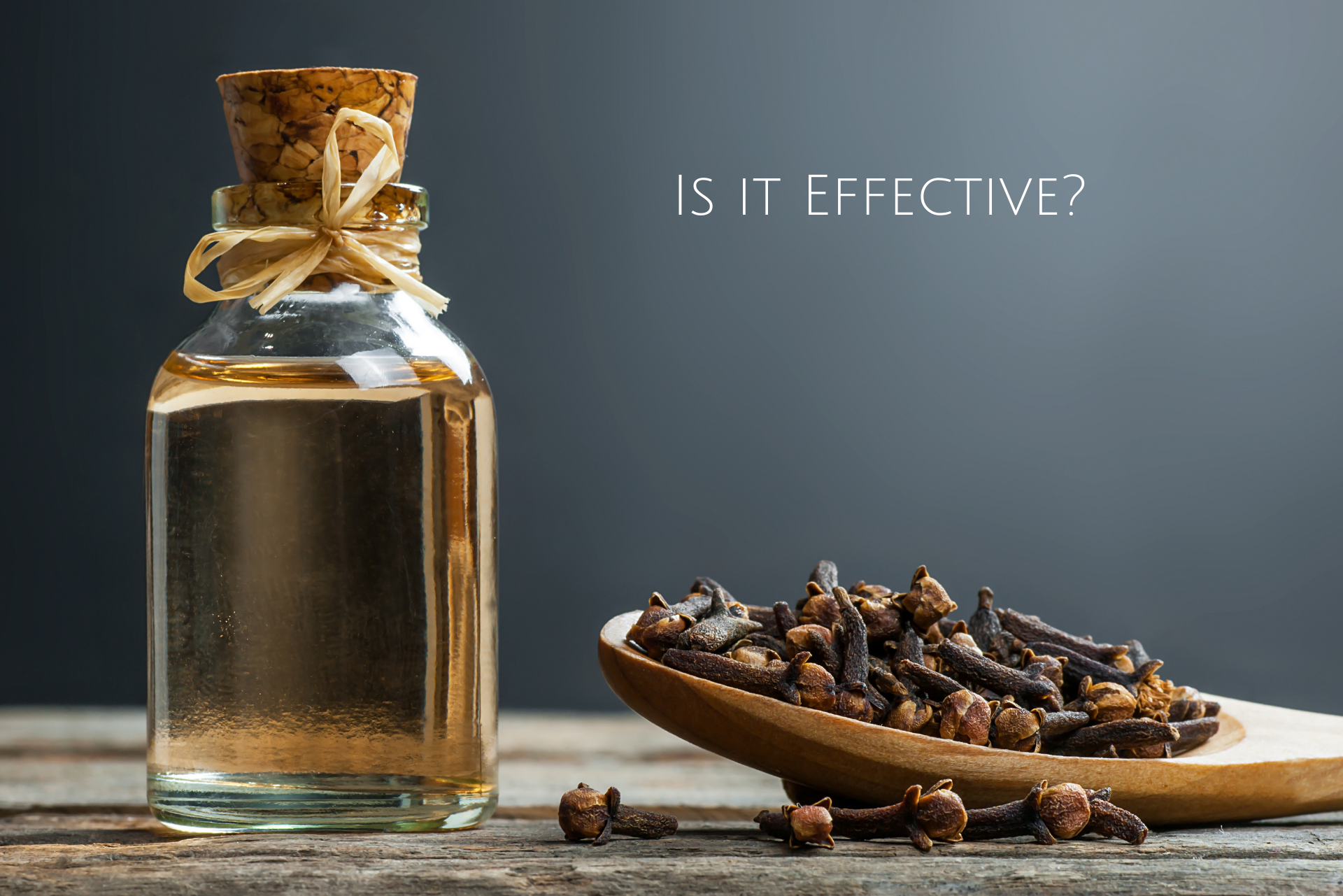
The clove oil effectives are a phenomenon that occurs when the smell of clove oil is inhaled by an individual who has been exposed to a pathogen.
The odor of clove oil is said to be an effective antimicrobial agent, capable of killing or inhibiting the growth of harmful microorganisms.
Clove oil can be used in food and cooking as well as in medicine and cosmetics.
Clove oil side effects and dangers to avoid:
Clove oil is a popular treatment for many ailments, but it can have serious side effects and dangers to avoid.
The most common symptoms people experience when using clove oil are
*Nervousness
*Headaches
*Irritability
*Restlessness
*Muscle spasms
When should you see a dentist?:
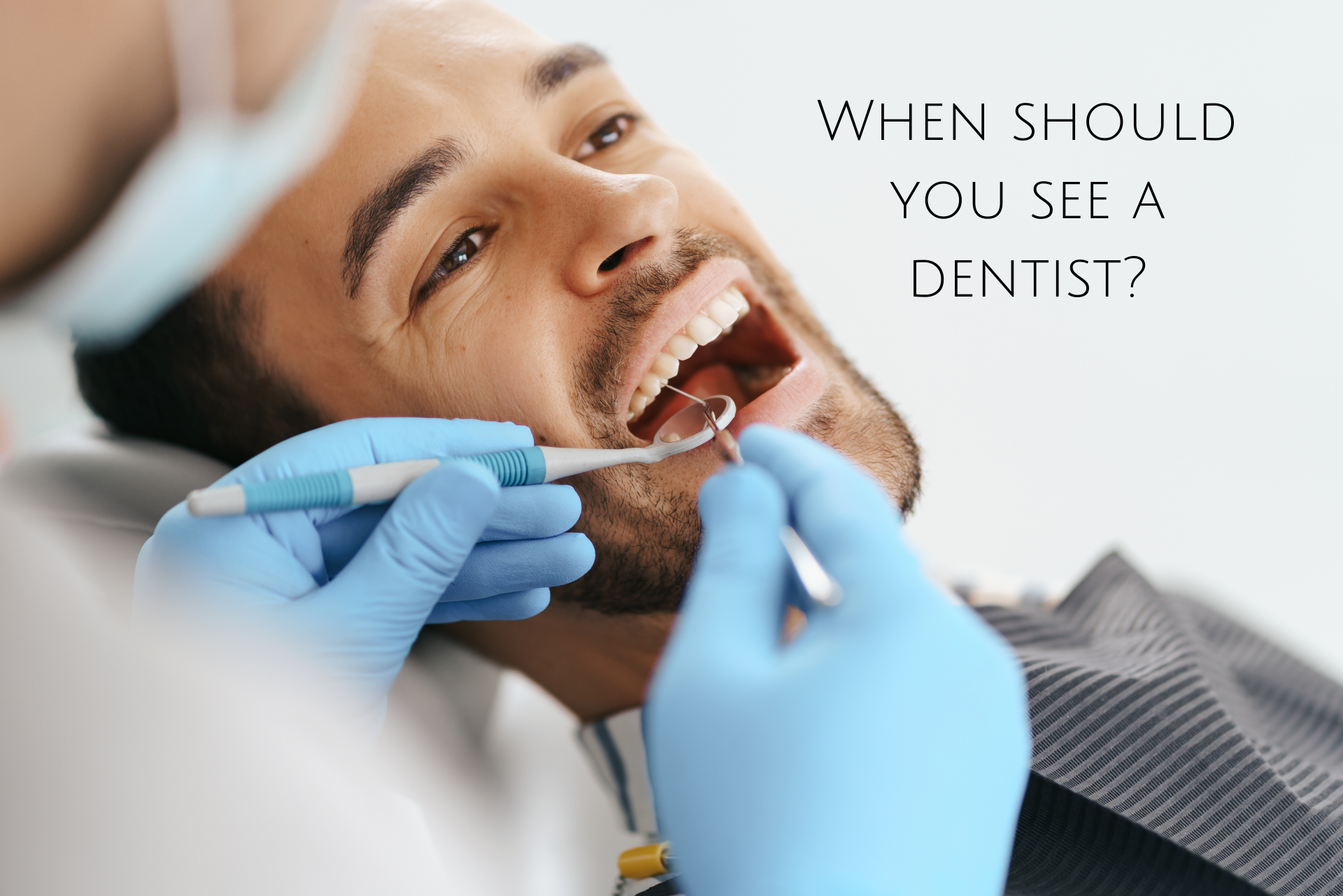
The answer to this question depends on what type of condition you have with your teeth and gums. Some conditions can be treated at home or by visiting your dentist for regular checkups while others require immediate attention from your dentist so that they can provide relief from pain or infection before it gets worse.
There are a few alternative treatments that can help you alleviate the pain and discomfort.
Alternative treatments for toothache: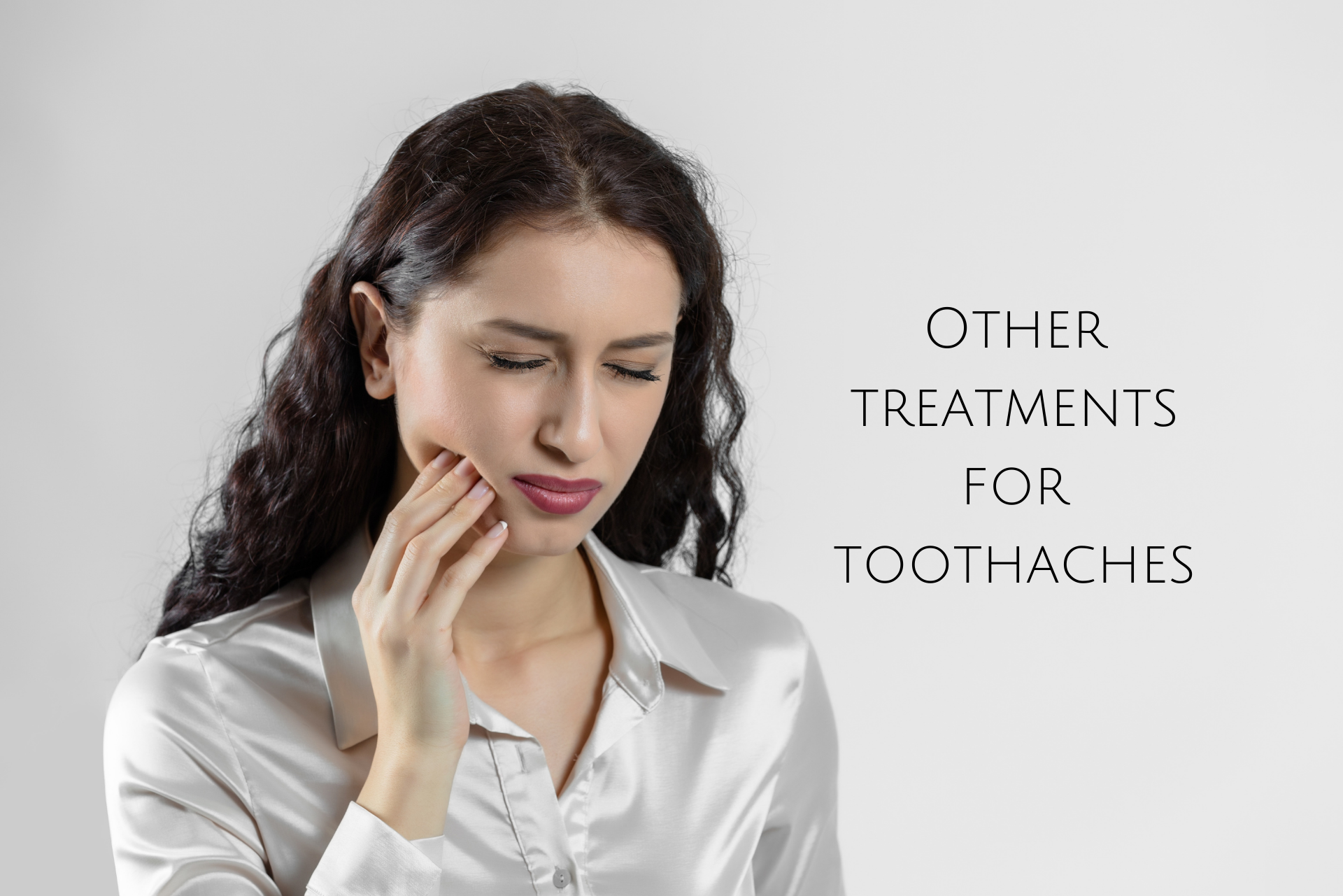
1.Ice pack: An ice pack is a good way to reduce inflammation and pain in your mouth. If you have an ice pack at home, you can use it to reduce the swelling around your tooth or jaw.
2. Saltwater rinse: Salty water rinses have been traditionally used as a treatment for toothaches because they have been found to help prevent bacteria from growing in the mouth. You should use about 1 tablespoon of salt dissolved in about 8 ounces of warm water mixed with 1 teaspoon of baking soda before brushing your teeth with it twice each day for two days or until the pain subsides.
3. Mouthwash: Mouthwash contains some type of anesthetic that will numb your mouth temporarily, which will give you relief from the pain and make it easier to sleep at night.
4. Nighttime: The most effective nighttime treatment is over-the-counter pain relievers such as ibuprofen, acetone and naproxen sodium - these can be taken in the form of cold medicine to reduce inflammation, which will help your mouth feel more comfortable.
5. Mouth guard: A mouth guard made from a rubber material can help protect your teeth while you sleep by cushioning them from the tongue or other objects during slumber. This is especially important if you have broken a tooth or loose teeth as it will help to prevent further damage.
6. Brushing with electric toothbrush: Brush your teeth twice a day with an electric toothbrush that will help remove any plaque buildup. This will also prevent the build-up of bacteria in your mouth, which can trigger a potentially harmful periodontal disease.
Recent Posts
-
Can herbal products help with anti agining ?
The surge in popularity of herbal products in anti-aging skincare is rooted in their potential
-
What is the difference between the oily,dry,normal,sensitive and combination?
Ever stood bewildered in the skincare aisle, bombarded by products promising solutions for "normal,"
-
The Importance of Healthy Hair in Beauty
Having healthy and vibrant hair is a key element of overall beauty and self-confidence. While skinca

